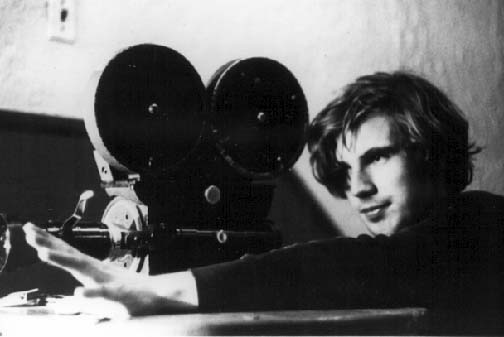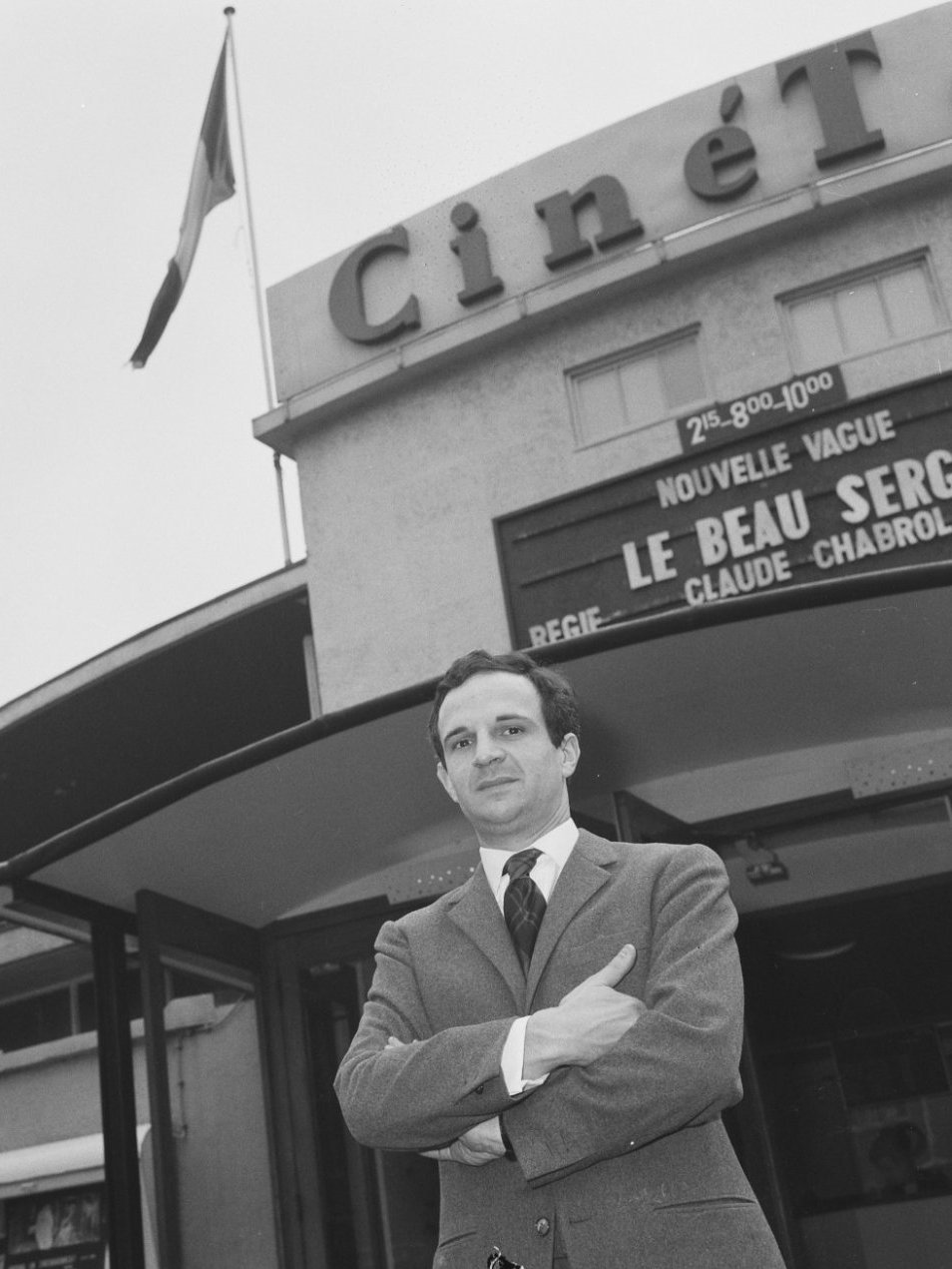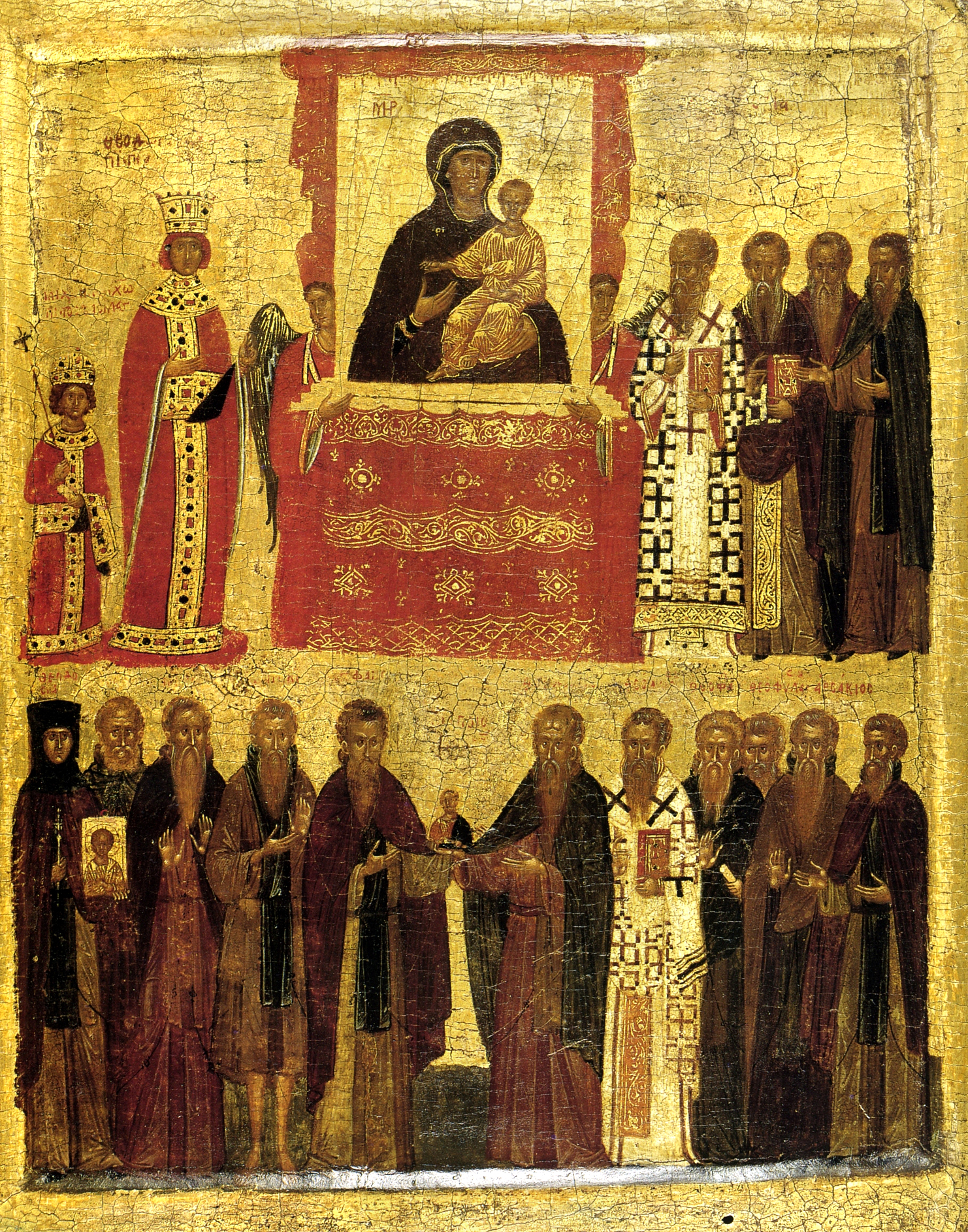|
Cinema Novo (film)
Cinema Novo (), "New Cinema" in English, is a genre and movement of film noted for its emphasis on social equality and intellectualism that rose to prominence in Brazil during the 1960s and 1970s.Dixon & Foster, 293. Cinema Novo formed in response to class and racial unrest both in Brazil and the United States. Influenced by Italian neorealism and French New Wave, films produced under the ideology of Cinema Novo opposed traditional Brazilian cinema, which consisted primarily of musicals, comedies and Cinema of the United States, Hollywood-style epics.Johnson & Stam, 33. Glauber Rocha is widely regarded as Cinema Novo's most influential filmmaker.Gazetas, 308.Dixon & Foster, 292. Today, the movement is often divided into three sequential phases that differ in tone, style and content. Origins Background In the 1950s, Brazilian cinema was dominated by ''chanchada'' (musicals, often comedic and "cheap"),Viany, 141. big-budget epics that imitated the style of Hollywood, and "'serious ... [...More Info...] [...Related Items...] OR: [Wikipedia] [Google] [Baidu] |
Cinema Of Portugal
The Cinema of Portugal started with the birth of the medium in the late 19th century. Cinema was introduced in Portugal in 1896 with the screening of foreign films and the first Portuguese film was '' Saída do Pessoal Operário da Fábrica Confiança'', made in the same year. The first movie theater opened in 1904 and the first scripted Portuguese film was ''O Rapto de Uma Actriz'' (1907). The first all-talking sound film, '' A Severa'', was made in 1931. Starting in 1933, with ''A Canção de Lisboa'', the Golden Age would last the next two decades, with films such as ''O Pátio das Cantigas'' (1942) and ''A Menina da Rádio'' (1944). ''Aniki-Bóbó'' (1942), Manoel de Oliveira's first feature film, marked a milestone, with a realist style predating Italian neorealism by a few years. In the 1950s the industry stagnated. The early 1960s saw the birth of the ''Cinema Novo'' (literally "New Cinema") movement, showing realism in film, in the vein of Italian neorealism and the Fr ... [...More Info...] [...Related Items...] OR: [Wikipedia] [Google] [Baidu] |
Italian Neorealism
Italian neorealism ( it, Neorealismo), also known as the Golden Age, is a national film movement characterized by stories set amongst the poor and the working class. They are filmed on location, frequently with non-professional actors. They primarily address the difficult economic and moral conditions of post-World War II Italy, representing changes in the Italian psyche and conditions of everyday life, including poverty, oppression, injustice and desperation. History Italian neorealism came about as World War II ended and Benito Mussolini's government fell, causing the Italian film industry to lose its centre. Neorealism was a sign of cultural and social change in Italy. Its films presented contemporary stories and ideas and were often shot on location as the Cinecittà film studios had been damaged significantly during the war. The neorealist style was developed by a circle of film critics that revolved around the magazine ''Cinema'', including: * Luchino Visconti * Gia ... [...More Info...] [...Related Items...] OR: [Wikipedia] [Google] [Baidu] |
Wheeler Winston Dixon
Wheeler Winston Dixon (born March 12, 1950) is an American filmmaker and scholar. He is an expert on film history, theory and criticism.Bill Goodykoontz, December 23, 2012, USA TodayDefining Tarantino Accessed Aug. 25, 2013, Quote = "...long, involved chunks of onanistic, meaningless dialogue..." His scholarship has particular emphasis on François Truffaut, Jean-Luc Godard, American experimental cinema and horror films. He has written extensively on numerous aspects of film, including his books ''A Short History of Film'' (co-authored with Gwendolyn Audrey Foster) and ''A History of Horror''. From 1999 through the end of 2014, he was co-editor, along with Gwendolyn Audrey Foster, of the ''Quarterly Review of Film and Video.'' He is regarded as a top reviewer of films.Susan Wloszczyna, April 2, 2010, USA TODAYHow to watch your dragons: 10 fire-breathing beasts on DVD Accessed Aug. 25, 2013, Quote = “Die Nibelungen: Siegfried (1924)...Highly recommended by Wheeler Winston Dixon, e ... [...More Info...] [...Related Items...] OR: [Wikipedia] [Google] [Baidu] |
Participatory Culture
Participatory culture, an opposing concept to consumer culture, is a culture in which private individuals (the public) do not act as consumers only, but also as contributors or producers (prosumers). The term is most often applied to the production or creation of some type of published media. Overview Recent advances in technologies (mostly personal computers and the Internet) have enabled private persons to create and publish such media, usually through the Internet. Since the technology now enables new forms of expression and engagement in public discourse, participatory culture not only supports individual creation but also informal relationships that pair novices with experts.Jenkins, Henry, Puroshotma, Ravi, Clinton, Katherine, Weigel, Margaret, & Robison, Alice J. (2005). Confronting the Challenges of Participatory Culture: Media Education for the 21st Century, available at http://www.newmedialiteracies.org/wp-content/uploads/pdfs/NMLWhitePaper.pdf. Retrieved on 2/4/2013. ... [...More Info...] [...Related Items...] OR: [Wikipedia] [Google] [Baidu] |
Auteur Theory
An auteur (; , 'author') is an artist with a distinctive approach, usually a film director whose filmmaking control is so unbounded but personal that the director is likened to the "author" of the film, which thus manifests the director's unique style or thematic focus. As an unnamed value, auteurism originated in French film criticism of the late 1940s, and derives from the critical approach of André Bazin and Alexandre Astruc, whereas American critic Andrew Sarris in 1962 called it auteur theory. Yet the concept first appeared in French in 1955 when director François Truffaut termed it ''policy of the authors'', and interpreted the films of some directors, like Alfred Hitchcock, as a body revealing recurring themes and preoccupations. American actor Jerry Lewis directed his own 1960 film ''The Bellboy'' via sweeping control, and was praised for "personal genius." By 1970, the New Hollywood era emerged with studios granting directors broad leeway. Pauline Kael argued, howeve ... [...More Info...] [...Related Items...] OR: [Wikipedia] [Google] [Baidu] |
Iconoclasm
Iconoclasm (from Ancient Greek, Greek: grc, wikt:εἰκών, εἰκών, lit=figure, icon, translit=eikṓn, label=none + grc, wikt:κλάω, κλάω, lit=to break, translit=kláō, label=none)From grc, wikt:εἰκών, εἰκών + wikt:κλάω, κλάω, lit=image-breaking. ''Iconoclasm'' may also be considered as a back-formation from ''iconoclast'' (Greek: εἰκοκλάστης). The corresponding Greek word for iconoclasm is εἰκονοκλασία, ''eikonoklasia''. is the social belief in the importance of the destruction of icons and other images or monuments, most frequently for religious or political reasons. People who engage in or support iconoclasm are called iconoclasts, a term that has come to be figuratively applied to any individual who challenges "cherished beliefs or venerated institutions on the grounds that they are erroneous or pernicious." Conversely, one who reveres or venerates religious images is called (by iconoclasts) an ''Iconolatry, ic ... [...More Info...] [...Related Items...] OR: [Wikipedia] [Google] [Baidu] |
World War II
World War II or the Second World War, often abbreviated as WWII or WW2, was a world war that lasted from 1939 to 1945. It involved the vast majority of the world's countries—including all of the great powers—forming two opposing military alliances: the Allies and the Axis powers. World War II was a total war that directly involved more than 100 million personnel from more than 30 countries. The major participants in the war threw their entire economic, industrial, and scientific capabilities behind the war effort, blurring the distinction between civilian and military resources. Aircraft played a major role in the conflict, enabling the strategic bombing of population centres and deploying the only two nuclear weapons ever used in war. World War II was by far the deadliest conflict in human history; it resulted in 70 to 85 million fatalities, mostly among civilians. Tens of millions died due to genocides (including the Holocaust), starvation, ma ... [...More Info...] [...Related Items...] OR: [Wikipedia] [Google] [Baidu] |
Working Class
The working class (or labouring class) comprises those engaged in manual-labour occupations or industrial work, who are remunerated via waged or salaried contracts. Working-class occupations (see also " Designation of workers by collar colour") include blue-collar jobs, and most pink-collar jobs. Members of the working class rely exclusively upon earnings from wage labour; thus, according to more inclusive definitions, the category can include almost all of the working population of industrialized economies, as well as those employed in the urban areas (cities, towns, villages) of non-industrialized economies or in the rural workforce. Definitions As with many terms describing social class, ''working class'' is defined and used in many different ways. The most general definition, used by many socialists, is that the working class includes all those who have nothing to sell but their labour. These people used to be referred to as the proletariat, but that term has gone out of ... [...More Info...] [...Related Items...] OR: [Wikipedia] [Google] [Baidu] |
Soviet Film
The cinema of the Soviet Union includes films produced by the constituent republics of the Soviet Union reflecting elements of their pre-Soviet culture, language and history, albeit they were all regulated by the central government in Moscow. Most prolific in their republican films, after the Russian Soviet Federative Socialist Republic, were Armenia, Azerbaijan, Georgia, Ukraine, and, to a lesser degree, Lithuania, Belarus and Moldavia. At the same time, the nation's film industry, which was fully nationalized throughout most of the country's history, was guided by philosophies and laws propounded by the monopoly Soviet Communist Party which introduced a new view on the cinema, socialist realism, which was different from the one before or after the existence of the Soviet Union. Historical outline Upon the establishment of the Russian Soviet Federative Socialist Republic (RSFSR) on November 7, 1917 (although the Union of Soviet Socialist Republics did not officially come into e ... [...More Info...] [...Related Items...] OR: [Wikipedia] [Google] [Baidu] |
Robert Stam
Robert Stam (born October 29, 1941) is an American film theorist working on film semiotics. He is a professor at New York University, where he teaches about the French New Wave filmmakers. Stam has published widely on French literature, comparative literature, and on film topics such as film history and film theory. Together with Ella Shohat, he co-authored ''Unthinking Eurocentrism: Multiculturalism and the Media''. Early life and education Born in Paterson, New Jersey, Stam completed his Ph.D. in Comparative Literature at U.C. Berkeley in 1977, after which he went directly to New York University, where he has been teaching ever since. Stam's graduate work ranged across Anglo-American literature, French and Francophone literature, and Luso-Brazilian literature. His dissertation was published as a book, ''Reflexivity in Film and Literature'' (1985). Career Stam has authored, co-authored and edited some seventeen books on film and cultural theory, literature and film, national c ... [...More Info...] [...Related Items...] OR: [Wikipedia] [Google] [Baidu] |
João Goulart
João Belchior Marques Goulart (1 March 1919 – 6 December 1976), commonly known as Jango, was a Brazilian politician who served as the 24th president of Brazil until a military coup d'état deposed him on 1 April 1964. He was considered the last left-wing president of Brazil until Luiz Inácio Lula da Silva took office in 2003. Name João Goulart was nicknamed Jango (), a common nickname to João in the south of Brazil. The Jânio Quadros–João Goulart presidential bid was thus called ''Jan–Jan'' (, an amalgamation of Jânio and Jango. His childhood nickname was ''Janguinho'' (little Jango). Years later, when he entered politics, he was supported and advised by Getúlio Vargas, and his friends and colleagues started to call him Jango. In his informality and affection, Getúlio Vargas also called him ''Janguinho''. His grandfather, Belchior Rodrigues Goulart, descended from Portuguese immigrants from the Azores who arrived in Rio Grande do Sul in the second half of the ... [...More Info...] [...Related Items...] OR: [Wikipedia] [Google] [Baidu] |
Juscelino Kubitschek
Juscelino Kubitschek de Oliveira (; 12 September 1902 – 22 August 1976), also known by his initials JK, was a prominent Brazilian politician who served as the 21st president of Brazil from 1956 to 1961. His term was marked by economic prosperity and political stability, being most known for the construction of a new capital, Brasília. Early life and career Kubitschek was born into a poor family in Diamantina, Minas Gerais. His father, João César de Oliveira (1872–1905), who died when Juscelino was two years old, was a traveling salesman. He was raised by his mother, a schoolteacher named Júlia Kubitschek (1873–1973). His mother was of part Czech and Roma descent. He was educated at a seminary school in Diamantina, where he was an average student. Kubitschek attended the Federal University of Minas Gerais in Belo Horizonte when he turned twenty. He became a licensed medical doctor after seven years of schooling. He then went to live in Europe for a few months after ... [...More Info...] [...Related Items...] OR: [Wikipedia] [Google] [Baidu] |








